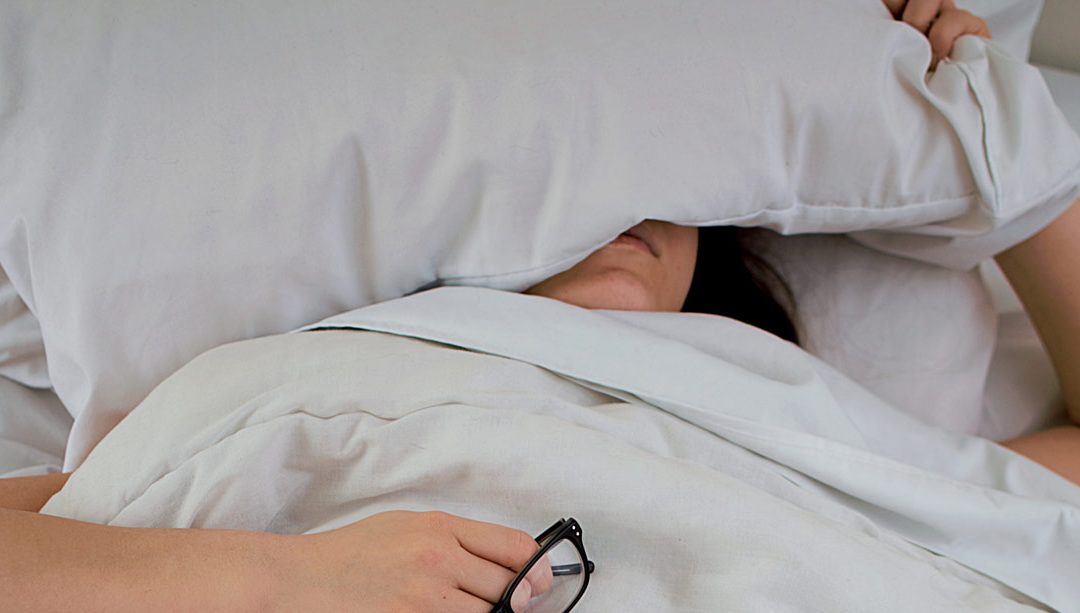When Chelsea first came to see me, she was looking to correct some long term digestion issues: gas and bloating, constipation, and fatigue. While discussing her health history, it came to light that she didn’t sleep well—in fact, she hadn’t slept consistently well in years. Some nights she would lie awake in bed, her thoughts racing and unable to surrender to sleep. Other nights, she would be so utterly exhausted, she’d fall asleep initially, only to wake up in the middle of the night at 3am, unable to fall back asleep for hours. Still other nights, she would sleep mostly well, but would wake feeling groggy and tired—as if she’d barely slept at all.
Sound familiar?
Like most people who struggle with chronic sleep issues, Chelsea had developed some poor sleep habits as a result. She also had not given much thought to what is called “sleep hygiene” or habits and routines that aid in regular, restful sleep. Correcting poor sleep hygiene takes time, but eventually, with commitment and perseverance, Chelsea was able to dramatically improve her sleep. Armed with the same information, commitment, and a little patience, you too can improve your sleep!
Read on for my top sleep tips.
- Tip #1: Follow the light.
- The amount, timing, and kind of light we are exposed to on a regular basis has a profound effect on our sleep/wake cycle. One of the most important ways to correct a disrupted sleep/wake cycle is through morning light exposure. Get at least 20-30 minutes of natural light first thing in the morning, or use a light box.
- End of day light is also important. Ideally, go outside for 10-20 minutes near sunset.
- Morning light is the most important, but exposure at both morning and evening times is best.
- Tip #2:Avoid blue light 1-2 hours before bed.
- Turn off ALL electronics, screens (or use a night mode app), and use blue blocking glasses. Blue spectrum light inhibits melatonin production, a hormone that helps us sleep.
- Tip #3:Set up an appropriate sleep environment
- Make sure your room is COMPLETELY dark.
- Try sleeping in a cool room. Usually 68 degrees or cooler is ideal.
- No electronics in the bedroom.
- Avoid stress in the bedroom. Do not work, have hard conversations, watch scary movies, or read stressful news in the bedroom.
- Leave your bed for sex and sleep only—no reading or other activities in bed.
- Make sure your bedding is comfortable.
- Tip #4: Develop a bedtime routine
- Try to spend 1-2 hours doing the same thing in the same order each night. For example, brush your teeth, make a cup of tea, and read for 30-45 minutes before crawling into bed.
- Have a consistent wake/sleep schedule. Get up and go to bed at the same times each day, within 30 minutes.
- Tip #5: Go to bed earlier, ideally by 10pm.
- The hours between 9 and midnight enable deeper sleep with fewer dreams.
- Eat dinner earlier. Allow 3-4 hours between your last bite of food and sleep.
- Tip #6: No vigorous exercise after 2pm.
- Exercising late in the day spikes cortisol and ramps everything in your body up. Try exercising in the morning hours. Walking or gentle yoga later in the day is fine, especially if you find it relaxing.
Improving sleep hygiene takes time. After you make a change, it will likely take 10-14 days before you see any benefit, with the full effect occurring at the 1 or 2 month mark. If you try all of these for two months and still don’t see results, consider supportive sleep supplements, correct any gut imbalances that may be present, and work with a functional practitioner to guide you.
